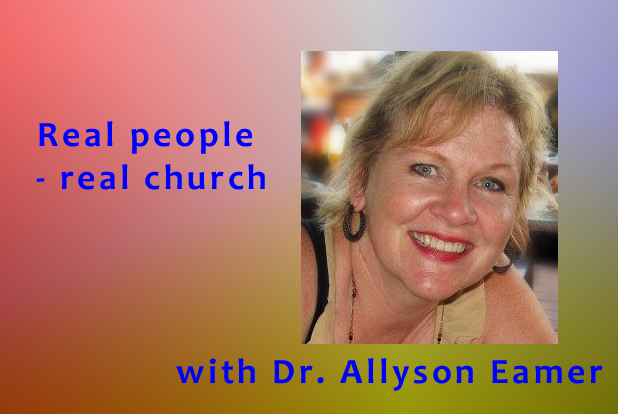The Not-So- Great Depression: Ministering to the Depressed
 CFN – We Christians have tended to avoid speaking openly about depression. We’re acquainted, through scripture, with downcast, weary, faint hearted, despairing and distressed. We can cope with discouraged, troubled or even broken hearted. These, we know. For these conditions, we have clear and legitimate explanations: death of a loved one, loss of a job, end of a marriage. Depression on the other hand smacks of self-indulgence and ingratitude. It conjures up images of lethargic, underachieving people engaged in excessive introspection…images of a marginal group of people unable to cope with the demands of modern life. But how accurate are those perceptions? The World Health Organization predicts that by 2020, depression will be the second only to heart disease as the most common cause of disability.i Health Canada indicates that 27% of Canadians will experience major depression in the course of their lives. ii These are not small numbers. And as for being lethargic underachievers? Not on your life! Increasingly high profile Canadians are going public with their diagnoses of clinical depression. Olympic cyclist and speed skater Clara Hughes, tennis star Rebecca Marino, musician Steven Page, comedian Jim Carrey, retired dancer Karen Kain and former Lieutenant Governor of Ontario, James Bartleman, are just a few who shatter the myth of depression as a condition that strikes the slothful. Indeed some studies point to a link between high achievers and depression.
CFN – We Christians have tended to avoid speaking openly about depression. We’re acquainted, through scripture, with downcast, weary, faint hearted, despairing and distressed. We can cope with discouraged, troubled or even broken hearted. These, we know. For these conditions, we have clear and legitimate explanations: death of a loved one, loss of a job, end of a marriage. Depression on the other hand smacks of self-indulgence and ingratitude. It conjures up images of lethargic, underachieving people engaged in excessive introspection…images of a marginal group of people unable to cope with the demands of modern life. But how accurate are those perceptions? The World Health Organization predicts that by 2020, depression will be the second only to heart disease as the most common cause of disability.i Health Canada indicates that 27% of Canadians will experience major depression in the course of their lives. ii These are not small numbers. And as for being lethargic underachievers? Not on your life! Increasingly high profile Canadians are going public with their diagnoses of clinical depression. Olympic cyclist and speed skater Clara Hughes, tennis star Rebecca Marino, musician Steven Page, comedian Jim Carrey, retired dancer Karen Kain and former Lieutenant Governor of Ontario, James Bartleman, are just a few who shatter the myth of depression as a condition that strikes the slothful. Indeed some studies point to a link between high achievers and depression.
So why have we, in the church, been reticent to talk about the condition ‘that dare not speak its name’? The bible tells us of three spiritual giants who struggled with depression: Job, David and Elijah. Here, in their own words, is what depression feels like:
Job: “If only my anguish could be weighed and all my misery be placed on the scales! It would surely outweigh the sand of the seas.” (Job 6: 2,3)
David: “My heart is blighted and withered like grass; I forget to eat my food. In my distress I groan aloud and am reduced to skin and bones.” (Psalm 142:4,5)
Elijah: “…I have had enough, Lord,” he said. “Take my life; I am no better than my ancestors.” (I Kings 19:4)
Surely these biblical heavyweights lend some credibility to depression as a very real experience of blackness. Like Job, I have been buried beneath the weight of my anguish. Like David, I have been so distressed that I have forgotten to eat, and like Elijah, I have asked God to take my life. (In fact I’ve even offered Him some suggestions as to how accomplish this with minimal fuss.) And like each of them, I am a person of faith, yet not exempt from the suffering associated with depression. Depression feels like stepping into a sinkhole, completely beyond rescue and utterly separated from any source of hope or strength… even separated from God. We can feel ourselves sinking, but lacking support and strategies for climbing out, we are powerless against the downward pull. We become so helpless against the onslaught of negative self-talk that we believe God himself has grown tired of us and turned away.
 That’s part of what makes it different from the occasional feelings of sadness, or helplessness that strike everyone from time to time. You can’t snap out of depression, and it doesn’t just pass on its own. There are some very distinct indicators of clinical depression. Experts tell us that if you have had four or more of the following symptoms continually for more than two weeks, you are likely suffering from depression: Melancholia, Irritability, Change in Appetite, Change in Sleep Pattern, Loss of Energy, Feelings of Hopelessness or Worthlessness, Inability to Concentrate, Thoughts of Death or Suicide, Loss of interest in things that were previously enjoyed, Disturbed Thinking, and Headaches or Chronic Pain Complaints.
That’s part of what makes it different from the occasional feelings of sadness, or helplessness that strike everyone from time to time. You can’t snap out of depression, and it doesn’t just pass on its own. There are some very distinct indicators of clinical depression. Experts tell us that if you have had four or more of the following symptoms continually for more than two weeks, you are likely suffering from depression: Melancholia, Irritability, Change in Appetite, Change in Sleep Pattern, Loss of Energy, Feelings of Hopelessness or Worthlessness, Inability to Concentrate, Thoughts of Death or Suicide, Loss of interest in things that were previously enjoyed, Disturbed Thinking, and Headaches or Chronic Pain Complaints.
There are several good questionnaires and inventories available online, but they should not be used as a substitute for a professional diagnosis. iii
So what causes depression? For those who would insist that depression is all in one’s head, they are quite right. Depression is in the head, actually the brain to be specific. Depression is a matter of brain chemistry and physiology that predisposes individuals to episodes of profound and persistent sadness, especially in the face of certain life experiences such as stress, trauma, and grief. Researchers at Harvard University have found that, in addition to the already well understood role of neurotransmitters in depression (low serotonin and norepinephrine levels), there are actual structural differences in the brains of people with depression. iv Brain imaging has demonstrated that the hippocampus, which helps us retrieve memories and overcome negative responses, can be as much as 13% smaller than normal in people who live with depression. Imaging also shows that activity in the amygdala (a part of the brain that has key roles in the formation and storage of memories associated with emotional events) is heightened in depressed people, and remains heightened even after the depression has passed. Furthermore the thalamus, the part of the brain that processes and relays sensory information, has up to 31% more nerve cells related to emotion in depressed people than in non-depressed people. v
But what causes the brain chemistry and physiology changes? Research indicates that genes definitely play a role. A genetic predisposition exists with respect to the biology of depression, both in brain chemistry/physiology and in hypothyroidism, a thyroid disease in which the hormone which regulates serotonin is not produced in sufficient quantity. But depression is highly complex, and is rarely attributable to only one factor. A ‘perfect storm’ of factors is required for clinical depression to develop: biology (the limbic system in the brain described above, the endocrine system or the immune system), a stressful or sad life event, or a life change of any kind, a temperament or worldview associated with decreased resilience, medical conditions such as heart disease or out-of-synch circadian rhythms, and even certain medications used to treat unrelated problems.
The good news is that there are treatments available. The bad news is that tailoring treatment for each individual often requires multiple successive trials. This is especially true with respect to finding the right drug, or combination of drugs, and the right dosage to impact brain chemistry. In most cases, the best results have been found when pharmacological intervention is combined with another form of treatment ranging from counselling and phototherapy to meditation, electroconvulsive therapy (ECT), and Cognitive Behavioural Therapy (CBT). Recently another alternative has emerged at Toronto’s Centre for Addiction and Mental Health. Known as magnetic seizure therapy or MST, this new treatment uses magnetic pulses (instead of the electrical currents used in ECT) to induce targeted seizures in the prefrontal cortex of the brain. Early studies show very promising results.
Having established that depression has organic origins, and that as many as one in four Canadians will suffer with it, why does it not merit the same kind of compassion and spiritual support with which Christians respond to other illnesses or to other conditions involving emotions? While many churches offer cancer and grief support groups, far fewer offer support for people with depression. In fact, we in Canada lag significantly behind our American counterparts, who have sought, for almost a decade now, to provide biblical teaching on depression to their congregations. One need look no further than online video sites such as YouTube and Vimeo to see how well documented these efforts have been. Sermons, lectures, workshop schedules, Christian tutorials, and Biblical resources for depression are all available online through American church websites. Godly support, resulting from these concerted efforts, is well thought-out and well substantiated by scripture. For example, one pastor, recommends the 5 R’s (Routine, Relaxation, Recreation, Rest, and Re-prioritizing) vi, while another suggests avoiding the 4 D’s (Disobedience, Defensiveness, Despair, Dejection). vii The resources exist, but without someone to point us to them, we can remain imprisoned by the fog of despair.
The John Hopkins Health Alerts Newsletter recently described studies which suggest that, when it comes to combatting depression, people with a set of regular spiritual practices and beliefs have an advantage over those who don’t. viii This further underscores the mandate for church leaders to provide Godly support and resources to parishioners with depression.
I co-facilitate a “Dealing with Depression” course at my home church in Toronto: St Paul’s, Bloor Street. Recently I tried something new with the participants. Using Psalm 22 as our text, we saw that David began his psalm by lamenting over his emotional pain, but then took heart by reminding himself of God’s faithfulness. I informed the group that we were going to follow David’s example and compose a psalm of our own. We called it Psalm 151: The Psalm of the Depressed. (You’d need to know that there are only 150 psalms in the bible in order to understand our humour!) Each of us began by contributing a description of how we feel in the darkness of depression. We followed that with each of us stating one characteristic of God that we believe to be true. Lastly, I compiled and sequenced our contributions to create the collaboratively composed Psalm below. As you read it, please remember that these are real words, contemporary words – articulated by ordinary people who look just like you, who sit in a pew each Sunday, who endure immeasurable suffering but who sought and received help from the Church. How are we doing as Christians at ministering to those with depression? How are we doing as leaders in churches at supporting people with depression? It just may be time to take stock.
Psalm 151: The Psalm of the Depressed
Hear my prayer Oh Lord!
My days are sad and I am filled with my loss.
Others suffer and still feel your closeness,
but I am separated from you God.
I see only suffering around me and I am desolate.
I see no reason to keep going.
An overwhelming heaviness sits in my body.
Death is the only comfort I imagine.
I have lost everything.
Am I being punished?
Do you hate me God?
But still you sit on the throne
And still I am here.
You do not afflict me willfully.
You take no pleasure in my suffering, but you promise to give it purpose.
You are always present. I am not alone. Your timing is perfect.
You brought me to this place and you will see me through.
I know that you alone are the one in whom I must place my trust.
Oh Lord you have made us from the beginning.
You blew the breath of life into Adam and I am a part of your creation.
I will turn back to you for you give my life purpose.
I long to make you happy. My heart longs to please you.
Keep my eyes focussed on you. You alone can help me.
I surrender to your will and your mighty power.
i. http://www.camhx.ca/education/online_courses_webinars/mha101/depression/Depression_.htm
ii. http://www.hc-sc.gc.ca/hl-vs/iyh-vsv/diseases-maladies/depression-eng.php#is
iii. http://www.depressedtest.com/ , http://www.netdoctor.co.uk/interactive/interactivetests/goldberg.php , and http://www.cawt.com/Site/11/Documents/Members/Evaluation/BeckDepressionInventory1.pdf
iv. http://www.health.harvard.edu/newsweek/what-causes-depression.htm
v. http://www.sciencedaily.com/releases/2004/07/040702092133.htm
vii. http://www.thevalorcenter.org/video/life-development-classes/
Some Christian resources for dealing with depression
Websites:
http://vimeo.com/31904633
http://www.desiringgod.org/resource-library/sermons/spiritual-depression-in-the-psalms
http://www.scripturezealot.com/sufferingchristians/
Books and Other Resources:
– David B. Biebel, Harold G. Koenig, M.D. (2004) New Light on Depression. Grand Rapids, Michigan: Zondervan.
– Sarah Collins and Jane Haynes (2011) Dealing with Depression. Scotland: Christian Focus.
– Kathryn Greene-McCreight (2006) Darkness Is My Only Companion : A Christian Response to Mental Illness. Grand Rapids Michigan: Brazos Press.
– John Piper (2006) When the Darkness will not lift: Doing what we can while we wait for God – and joy. Illinois: Crossway Books.
*This is an excerpt from a longer article that appears in print in the Easter Edition of The Anglican Planet (http://anglicanplanet.net/canadian-news/)
Allyson Eamer, Ph.D. is a Cornwall native, a sociolinguist and university professor in Toronto. She insists that it is her Christian faith and personal experience with depression, rather than any letters beside her name, that qualify her to speak and write on this subject.
Would you like to sponsor this semi-monthly column? If so, contact Don today!


Very interesting. As a middle aged woman with depression I can certainly relate.
Now that is a good columnist. I had a crush on her in high school.
Really appreciated article. It was helpful and inspirational. Thanks for just good information.
Howdy! Someone in my Facebook group shared this site with us so I came to check it out. I’m definitely loving the information. I’m book-marking and will be tweeting this to my followers!
Excellent blog and outstanding design.
Very insightful & helpful
amazing information